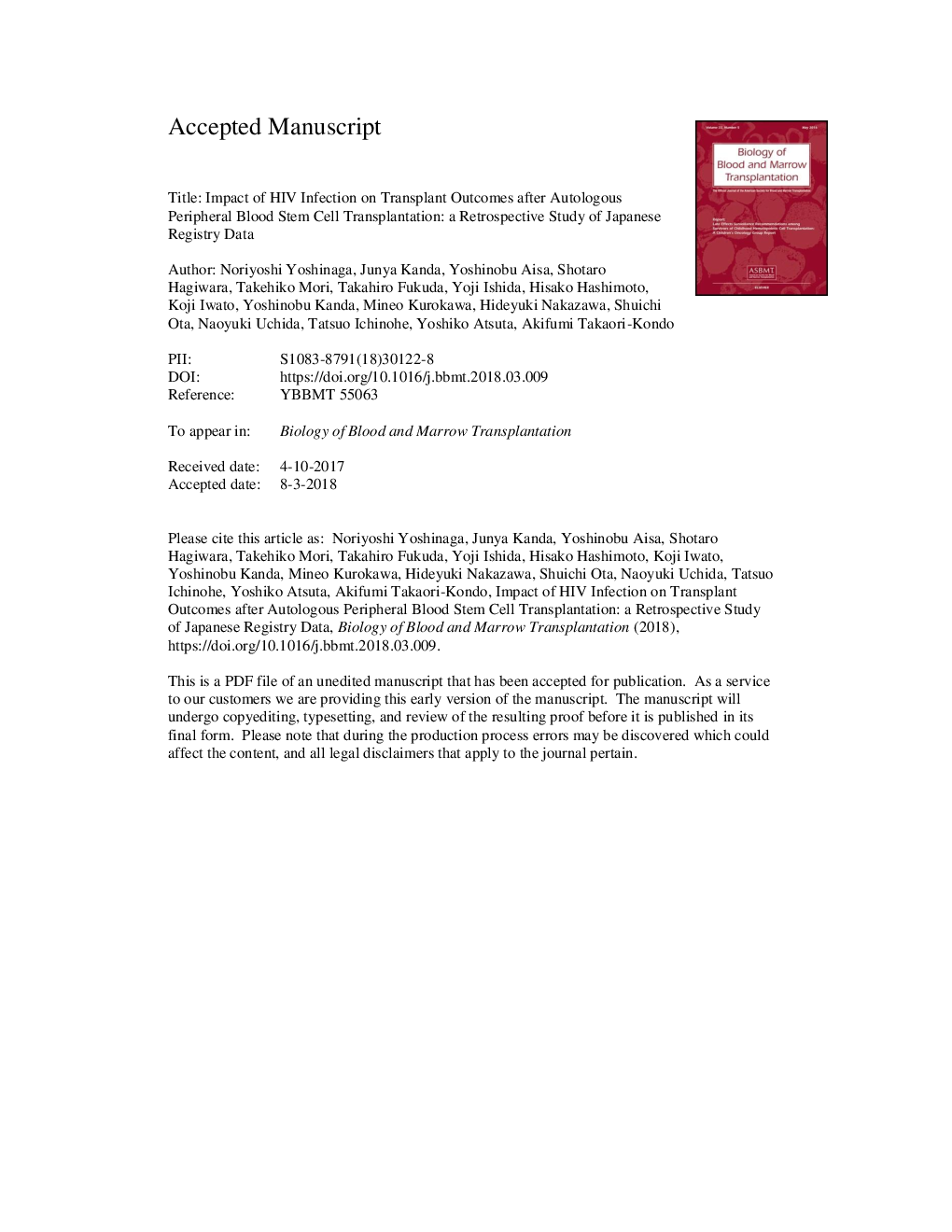| Article ID | Journal | Published Year | Pages | File Type |
|---|---|---|---|---|
| 8949643 | Biology of Blood and Marrow Transplantation | 2018 | 27 Pages |
Abstract
Autologous stem cell transplantation (ASCT) is a treatment option for HIV-positive patients with non-Hodgkin lymphoma (NHL) and multiple myeloma (MM). However, the prognosis after ASCT in HIV-positive Japanese patients remains unclear. The aim of this study was to evaluate the impact of HIV infection on transplant outcomes after ASCT in Japan. Using the national database of the Japan Society for Hematopoietic Cell Transplantation, we retrospectively evaluated patients with NHL (nâ=â3862) and MM (nâ=â2670) who underwent their first ASCT between 2001 and 2014. The presence of HIV antibody was used to diagnose HIV infection. Fifty-six patients with NHL (1.4%) and 23 with MM (.8%) were positive for HIV antibody. Among patients with NHL overall survival (OS) was lower in HIV-positive patients than in HIV-negative patients (5-year OS: HIV-positive patients, 44% versus HIV-negative patients, 65%; Pâ<â.001). In a multivariate analysis HIV infection was significantly associated with an increased risk of overall mortality (hazard ratio, 2.30; Pâ<â.001). The incidence of relapse was higher in HIV-positive patients (Pâ=â.036), whereas there was a similar incidence of nonrelapse mortality (Pâ=â.879). OS in patients with MM was similar between those with/without HIV infection (5-year OS: HIV-positive patients, 61% versus HIV-negative patients, 63%; Pâ=â.988). HIV infection was associated with a higher risk of overall mortality and relapse after ASCT for NHL in a Japanese population.
Related Topics
Life Sciences
Biochemistry, Genetics and Molecular Biology
Cancer Research
Authors
Noriyoshi Yoshinaga, Junya Kanda, Yoshinobu Aisa, Shotaro Hagiwara, Takehiko Mori, Takahiro Fukuda, Yoji Ishida, Hisako Hashimoto, Koji Iwato, Yoshinobu Kanda, Mineo Kurokawa, Hideyuki Nakazawa, Shuichi Ota, Naoyuki Uchida, Tatsuo Ichinohe,
